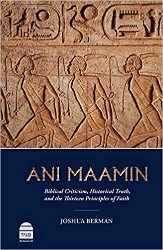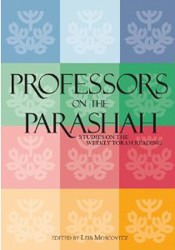This book explores the reception history of the most important Jewish Bible commentary ever composed, the Commentary on the Torah of Rashi (Shlomo Yitzhaki; 1040 – 1105). Though the Commentary has benefited from enormous scholarly attention, analysis of diverse reactions to it has been surprisingly scant. Viewing its path to preeminence through a diverse array of religious, intellectual, literary, and sociocultural lenses, Eric Lawee focuses on processes of the Commentary’s canonization and on a hitherto unexamined – and wholly unexpected – feature of its reception: critical, and at times astonishingly harsh, resistance to it. Lawee shows how and why, despite such resistance, Rashi’s interpretation of the Torah became an exegetical classic, a staple in the curriculum, a source of shared religious vocabulary for Jews across time and place, and a foundational text that shaped the Jewish nation’s collective identity.
The book takes as its larger integrating perspective processes of canonicity as they shape how traditions flourish, disintegrate, or evolve. Rashi’s scriptural magnum opus, the foremost work of Franco-German (Ashkenazic) biblical scholarship, faced stiff competition for canonical supremacy in the form of rationalist reconfigurations of Judaism as they developed in Mediterranean seats of learning. It nevertheless emerged triumphant in an intense battle for Judaism’s future that unfolded in late medieval and early modern times. Investigation of the reception of the Commentary throws light on issues in Jewish scholarship and spirituality that continue to stir reflection, and even passionate debate, in the Jewish world today.

Rashi’s Commentary on the Torah: Canonization and Resistance in the Reception of a Jewish Classic
Discussion Questions
Studying the text of the Bible through the commentary of Solomon Ben Isaac (1040−1105), famously known as R. Shlomo Yitzhaki or Rashi, has become so culturally ingrained that, for many teachers and students, it is difficult to disentangle the plain meaning of the text of the Bible from the comments of Rashi that they absorbed in their youth. Culturally speaking, the commentary achieved such authoritative status that biblical literacy implied familiarity with the commentary of Rashi. And yet we know that this was not always so. How did the commentary of Rashi itself become a canonical text? How does one eleventh-century commentary achieve such universal acceptance throughout the Jewish world? The research on this question has been relatively scant — until now. In Rashi’s Commentary on the Torah, Eric Lawee, professor of Bible at Bar-Ilan University in Israel has written a comprehensive reception history of the most important Jewish commentary on the Torah. The reader might be surprised to discover the intensity of responses, both positive and harshly critical, to the increasing popular acceptance of Rashi’s work on the Torah. Through meticulous scholarship and a vibrant writing style, Lawee takes us on a journey as we follow the twists and turns of this adventure, as the commentary’s reach extended around the world. The book affords the reader the opportunity to more fully comprehend Rashi’s work as well as the interpretative, philosophical and political issues that were at stake in the debates that took place around its reception. Furthermore, the study of this particular example of reception history shines a light on the ways that interpretation and canonization shape the development, decline and evolution of traditions throughout the generations. Lawee’s book is an example of exemplary scholarship written in a style that will keep you engaged and turning its pages.

Help support the Jewish Book Council.



